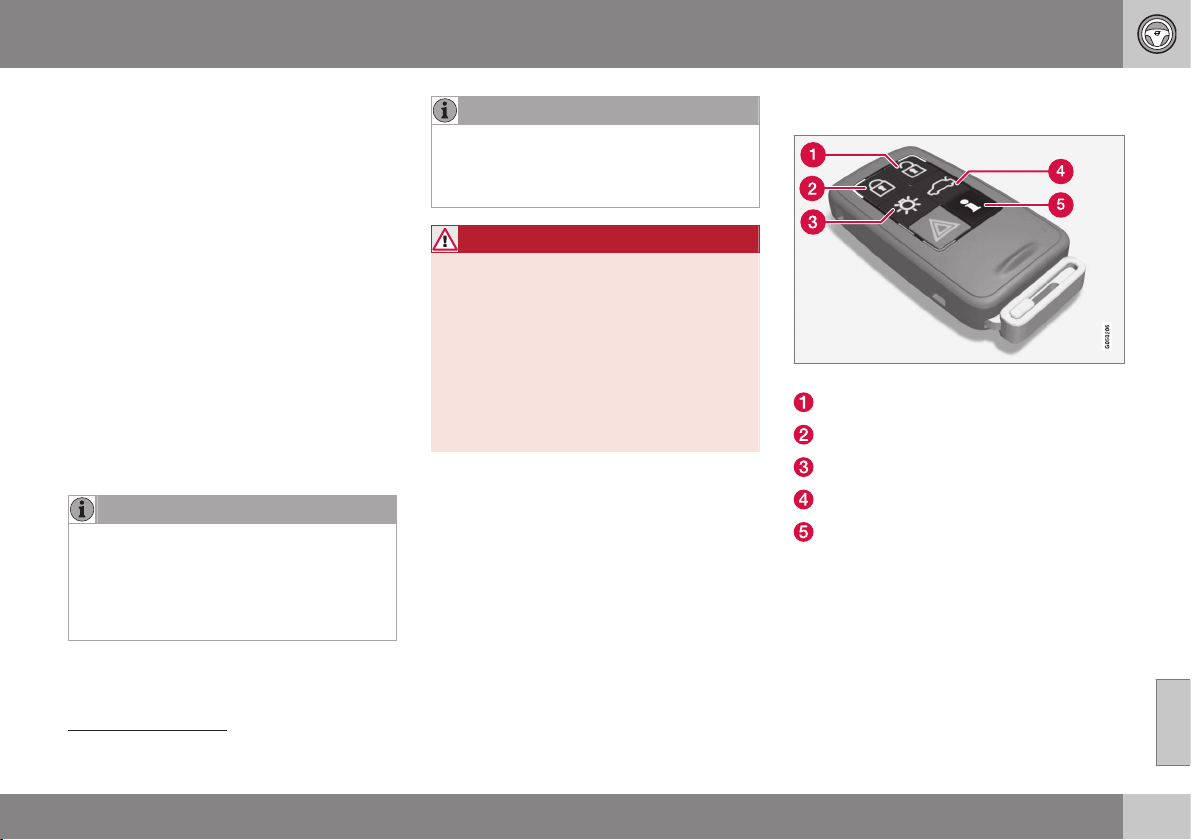Loading ...
Loading ...
Loading ...

08 Starting and driving
08
}}
* Option/accessory, for more information, see Introduction.
277
Remote start (ERS)*
Remote start (ERS – Engine Remote Start)
means that the car's engine can be started
remotely in order to warm up/cool down the
passenger compartment before departure.
ERS is activated via key and/or via Volvo On
Call*.
The climate control starts with the same set-
tings that were being used when the car was
parked.
An ERS-started engine is activated for a
maximum of 15 minutes, then it is switched
off. After two ERS-activations the engine
must be started in the normal way before
ERS can be re-used.
ERS is only available in cars with automatic
gearbox and cars that have a bonnet switch
4
installed.
NOTE
The service life of the remote control key's
battery is affected by the ERS function. In
the event of frequent use of ERS the bat-
tery should therefore be changed once per
year, see Remote control key - replacing
the battery (p. 172).
NOTE
Follow local/national rules/regulations on
idling. Also take into account the local/
national rules/regulations regarding the
noise level when the engine is running.
WARNING
To remote-start the engine, the following
criteria must be met:
•
The car must be supervised.
•
There must be no people or animals
inside or around the car.
•
The car must not be parked in a
closed, unventilated area - the exhaust
gases may seriously injure humans
and animals.
Related information
•
Remote start (ERS) - operation (p. 277)
•
Remote start (ERS) - symbols and mes-
sages (p. 279)
Remote start (ERS) - operation
The key's buttons for remote start.
Unlocking
Locking
Approach lighting
Unlocking, tailgate
Information
5
Remote starting the engine
To be able to remotely start the engine the
car must be locked and the bonnet closed.
Proceed as follows:
4
Available in the XC60, cars with alarm, most cars with 4-cylinder engines or if ERS is selected for new construction.
5
Only on PCC key, see Remote control key with PCC* - unique functions (p. 168).
Loading ...
Loading ...
Loading ...